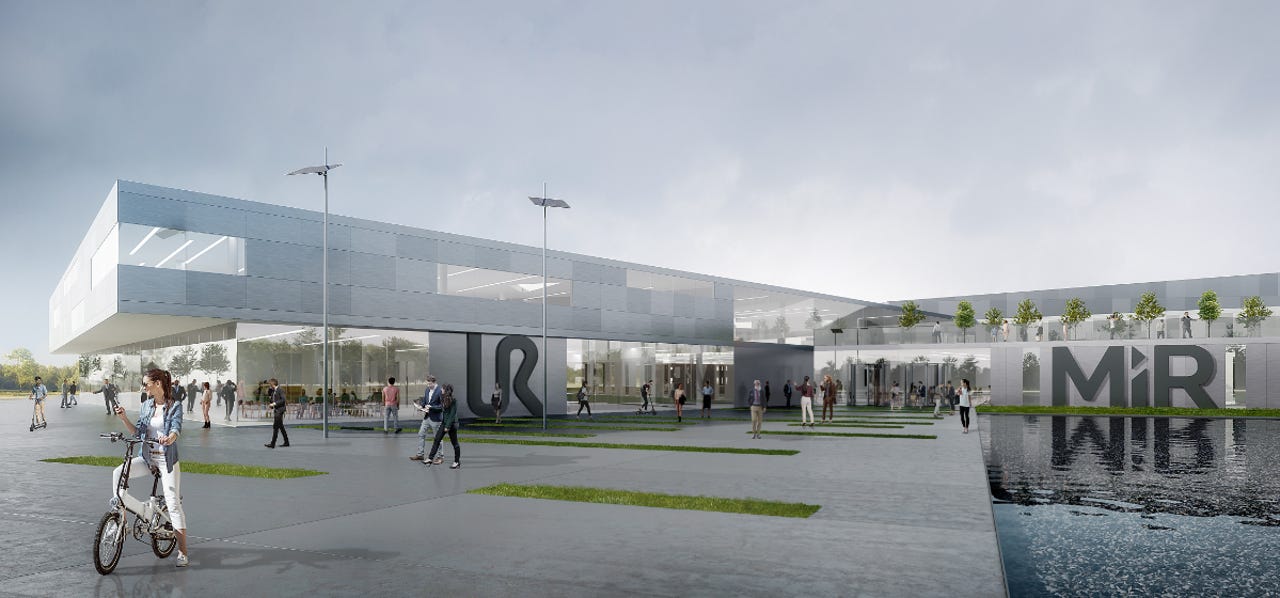Denmark opens swanky HQ for robot coworkers


You want windmills, go to the Netherlands. But if you want robots that can work intelligently and safely alongside humans, Denmark ought to be your first stop.
The country has long been a hub of collaborative robotics, which are user-friendly, typically task-agnostic robots that can work closely with humans without the need for cages. Universal Robots, the leader in (and in many respects creator of) the space, has called Denmark home since its founding in 2005.
Now there's an appropriate monument to the country's corner on the market in the form of an impressive building site in Odense. With financial backing from Massachusetts-based Teradyne, the building will serve as a hub for Universal Robots (UR) and Mobile Industrial Robots (MiR), another player in the space. Teradyne is parent company to both UR and MiR.
"MiR and UR are leading the world in the collaborative robot revolution that's making automation solutions available to companies of all sizes. Teradyne continues to invest aggressively in the development of new products, solutions, and sales channels and this new facility is a key part of our growth strategy," says Mark Jagiela, President and CEO of Teradyne. "We have found something very special in Denmark. The Danes' combination of innovative industrial design, combined with a practical business sense, have created a perfect combination for this emerging industry. The ability to make robots work in collaboration with humans in a user-friendly manner is something we have not encountered to this degree anywhere else in the world and we're very excited to expand our capabilities in Odense."
By some metrics collaborative robots are the fastest growing (albeit still relatively small) segment of industrial automation. The market could be worth $12 billion in 2030, according to ABI Research.
Teradyne has previously invested more than half a billion USD in its two Danish robotics holdings, helping spur development and growth across the sector and giving Denmark a leadership position in the fast-growing industrial robotics industry. Danish analyst Damvad suggests the country could employ 25,000 in the robotics sector by 2025 if current growth forecasts hold.
"Denmark has a significant lead in the global market for cobots. Investing ambitiously in building the world's largest cobot hub right here in Odense makes a lot of sense," says Thomas Visti, CEO of Mobile Industrial Robots. "Offering a strong, professional environment with superb facilities enables us to attract talent from all over the world."
According to figures provided by the company, MiR has hired 100 new employees the past year, with UR adding 280 new staff members during the past two years. the new robotics hub, which has $36 million in backing from Teradyne, should help spur strong employment in the Danish sector in years ahead.